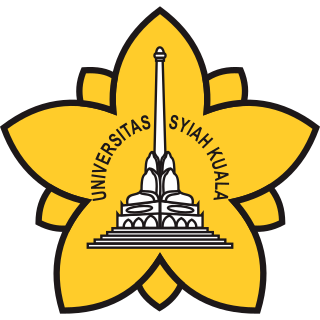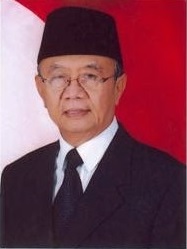Related Research Articles
Human rights in Indonesia are defined by the 1945 Constitution and the laws under it; several rights are guaranteed especially as a result of the constitutional amendments following the Reform era. The Ministry of Law and Human Rights deals with human rights issues in the cabinet, and the National Commission on Human Rights, established in Suharto's New Order administration in 1993, is the country's national human rights institution.

Lesbian, gay, bisexual, and transgender (LGBT) people in Indonesia face legal challenges and prejudices not experienced by non-LGBTQ residents. Traditional social norms disapprove of homosexuality and gender transitioning, which impacts public policy. Indonesian same-sex couples and households headed by same-sex couples are not eligible for any of the legal protections available to opposite-sex married couples. Most parts of Indonesia do not have a sodomy law, and the country does not currently prohibit non-commercial, private and consensual sexual activity between members of the same-sex, yet there is no specific Indonesian law that protects the LGBT community against discrimination and hate crimes. In Aceh, homosexuality is illegal under Islamic Sharia law and it is punishable by flogging or imprisonment. Indonesia does not recognize same-sex marriage.

Syiah Kuala University, abbreviated as USK, founded on 2 September 1961, is the largest and the oldest national university in Banda Aceh, Indonesia. The name of the university is taken from the prominent theologian, Tengku Abdur Rauf As Singkili, who lived in the 16th century.
Lhoksukon is a town in Aceh province of Indonesia and it is the seat of North Aceh Regency.

The roles of women in Indonesia today are being affected by many factors, including increased modernization, globalization, improved education and advances in technology. Many Indonesian women choose to reside in cities instead of staying in townships to perform agricultural work because of personal, professional, and family-related necessities, and economic requirements. These women are moving away from the traditional dictates of Indonesian culture, wherein women act simply and solely as wives and mothers. At present, the women of Indonesia are also venturing actively into the realm of national development, and working as active members of organisations that focus and act on women's issues and concerns.

The National Commission on Human Rights is the national human rights institution (NHRI) of Indonesia. As with other NHRIs, its principal functions are the protection and promotion of human rights.

KamalaChandrakirana is a feminist human rights activist for justice and democracy from Indonesia. She has been a member of the United Nations Working Group on discrimination against women in law and practice since 2011. She spent over a decade founding and serving Indonesia's National Commission on Violence Against Women, the country's primary mechanism for women's human rights. She was first Secretary General from 1998 to 2003, then Chairperson from 2003 to 2009. In 2009, she co-founded Musawah, a "global movement for equality and justice in the Muslim family", with other activists, academics and progressive religious scholars.

The province of Aceh in Indonesia enforces some provisions of Islamic criminal law, the sole Indonesian province to do so. In Aceh, Islamic criminal law is called jinayat. The laws that implement it are called Qanun Jinayat or Hukum Jinayat, roughly meaning "Islamic criminal code". Although the largely-secular laws of Indonesia apply in Aceh, the provincial government passed additional regulations, some derived from Islamic criminal law, after Indonesia authorized the province to enact regional regulations and granted Aceh special autonomy to implement Islamic law. Offences under the provisions include alcohol consumption, production and distribution, gambling, adultery, rape, sexual harassment, certain intimacies outside marriage, and certain homosexual acts. Punishments include caning, fines, and imprisonment. There is no provision for stoning; an attempt to introduce it in 2009 was vetoed by Governor Irwandi Yusuf. In 2016 Aceh processed 324 first instance court cases under Islamic criminal law, and carried out at least 100 caning sentences.
The Legal Aid Institute Jakarta, also known as Lembaga Bantuan Hukum Jakarta, is Indonesia's first legal aid non-government organization. LBH Jakarta seeks to provide legal aid for the poor, aiding with law illiteracy, and suppressed peoples. LBH was established in 1969 in the city of Jakarta as the first LBH of what would eventually become multiple LBH offices around the country. It was not until 1970, with the support of PERADIN and the Provincial government of Jakarta, that LBH officially began commencing in operations. After the establishment of the YLBHI, which also operates out of Jakarta, the LBH located in Jakarta became the legal aid institute for the city.

Salahuddin Wahid, colloquially known as Gus Solah, was an Indonesian Islamic scholar and politician. He originated from a Nahdlatul Ulama family, and was the younger brother of Indonesian president Abdurrahman Wahid. He served in the country's People's Consultative Assembly (1998–1999), and as the vice chair of the National Commission on Human Rights (2002–2004). During the 2004 Indonesian presidential election, he became the running mate to Wiranto, though the ticket lost the election.

The Ministry of Women Empowerment and Child Protection (MoWECP) of the Republic of Indonesia, formerly the Ministry of Women's Empowerment of the Republic of Indonesia is a government ministry responsible for the rights and welfare of women and children of Indonesia. The minister is currently I Gusti Ayu Bintang Darmawati since 23 October 2019.

Feminism in Indonesia refers to the long history of discourse for gender equality to bring about positive social change in Indonesia. The issues women in Indonesia currently are facing include gender violence, underage marriages, and lack of representation in the political system. Feminism and the women's right movement began during colonial Indonesia under Dutch rule and were spearheaded by the national heroine Kartini, a Javanese noblewoman who advocated for the education of all women and girls regardless of social status. In the early 19th century, women's rights organizations and movements were allowed to developed under Budi Utomo, the first Indonesian Nationalist organization. Modern day Indonesian feminism include and are influenced by both fundamentalist and progressive Islamic women's organizations.
The Law on Sexual Violence Crimes is a law aimed to tackle sexual violence in Indonesia. The bill of the law was proposed on January 26, 2016. The law focuses on the prevention of sexual violence, more rights for victims and to acknowledge marital rape.
Fientje Salomina Jarangga is a women's rights activist from Papua, Indonesia, who is the coordinator of the Papuan Women's Human Rights Network. She campaigns against domestic violence in Papua.
The following lists events that happened during 1998 in Indonesia.

Dolorosa Sinaga is an Indonesian sculptor, feminist and human rights activist. She was previously dean of the faculty of fine arts at the Institut Kesenian Jakarta and founder of the Somalaing Art Studio which she has operated in Jakarta since 1987. Her works appear in the National Gallery of Indonesia and internationally.
The National Commission on Violence against Women is an Indonesian independent state institution established in 1998 with the goal of eliminating violence against women. It is one of three such institutions, the other two being the National Commission on Human Rights and the Indonesian Child Protection Commission.
In December 2023, students from various universities in Aceh, Indonesia protested and rioted against Rohingya refugees. The protests took place at the Balee Meuseuraya Hall in Banda Aceh.

Saparinah Sadli is an Indonesian psychologist and activist. She was a lecturer at the University of Indonesia and spearheaded the establishment of its Department of Women's Studies. A member of the National Commission on Human Rights from 1996 through 2000, she became the inaugural chairperson of the National Commission on Violence against Women in 1998. She has been awarded the Nabil Award, the Roosseno Award, the Cendekiawan Berdedikasi Award from Kompas, and a lifetime achievement award from Femina magazine.
References
- ↑ "Young Men and Violence Against Women". SBS Language. Retrieved 2023-03-11.
- ↑ Jones, Balawyn; Walden, Max. "Conservative rejection of Indonesia's anti-sexual violence bill misplaced". The Conversation. Retrieved 2023-03-11.
- ↑ Tempo (2019-02-12). "This Is A Matter of Law, Not Religion". Tempo. Retrieved 2023-03-11.
- ↑ Surewicz, Anita (2015-08-20). "Activists Say Sharia Law Perpetuates Violence Against Women In Aceh". Indonesia Expat. Retrieved 2023-03-11.
- ↑ Manchala, Deenabandhu (2019-07-16). "Women's Interfaith Gathering in Kalimantan, Indonesia". Global Ministries. Retrieved 2023-03-11.
- ↑ "What Indonesian women fear about law granting men more wives". South China Morning Post. 2019-07-15. Retrieved 2023-03-11.
- ↑ "New women's minister 'could lead' fight for urgent reforms". The Jakarta Post. Retrieved 2023-03-11.
- ↑ VIVA, PT VIVA MEDIA BARU- (2017-12-05). "Profil Azriana R Manalu - VIVA". www.viva.co.id (in Indonesian). Retrieved 2023-03-11.
- ↑ "Azriana Rambe Manalu:"Hukum yang Ada Tidak Berjalan Maju Secepat Perkembangan Kasus Kekerasan Seksual"". Jurnal Perempuan. Retrieved 2023-03-11.